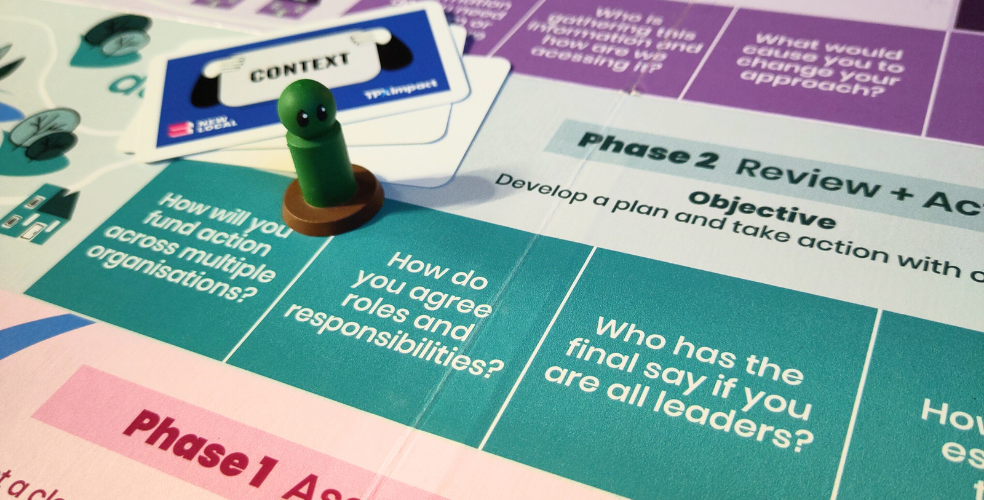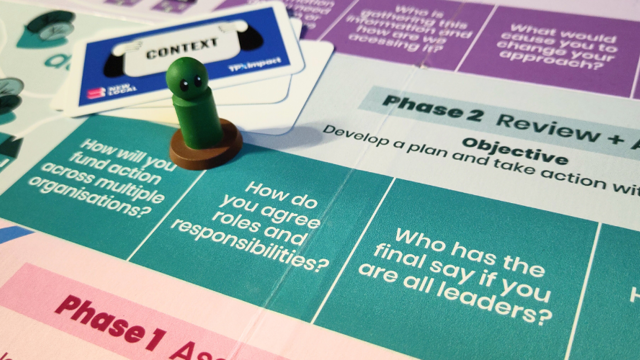Social workers achieve amazing things with families and young people but are overwhelmed by the increasing demands of the profession and cumbersome legacy technology. Systemic practice is equipping social workers with the skills to respond to the changing needs of vulnerable families, but the tools they are given to do their job are not matching up.
"Social work is not a process, it is an art, a skill, a way of working with people in crisis to help them to see their way through it and strengthen their future."Sally Robinson
Social Care Network, The Guardian
It’s time for a huge change. It’s time for us all to work in a creative, user-centred way to support the people working hard to improve the lives of families and young people and help keep children safe.
Technology is dictating practice
Process, technology and policies, not people, are dictating social care practice. We have placed barriers between the people involved in safeguarding children, rather than supporting them to build relationships and work better together.
Social workers are held back by legacy technology built for an outdated era and way of working, costing local authorities hundreds of thousands per year in licensing and maintenance. The average social worker can spend an astounding 60% of their time writing, recording and processing data. Stuck in an office, feeding a system, this poor technology leaves little time to spend with the families and young people most in need. They don’t have time for the most important part of social work: building relationships.
Current case management systems focus on collecting information. Change to this legacy begins with a change in our behaviour and the way we view the systems we design to support these very human services. By focussing on the needs of social workers and families, we can begin to create better tools for better outcomes.
It is a privilege to write the story of another person.
Recorded information should not belong to local authorities. It should be shared with the families involved, supporting them to be part of the solution. Some of this already happens, in spite of outdated systems, but the technology we create is capable of doing better. Our focus, as the designers of better services, must be to prioritise building technology that provides families with deeper ownership of their stories.
Moving towards collaboration
No longer will slow, cumbersome technology be a barrier to working with families and young people.
Kensington & Chelsea, Hammersmith & Fulham and Westminster Children’s Services asked us to help them radically rethink how technology supports children’s social care. These councils are stepping up to the plate, brave enough to be the leaders in social care practice after being let down by a market where nothing is fit for purpose.
Over the past year and a half, we’ve embarked on a process of Discovery and user research to explore the current experience of social workers and families. Underneath the language of referral, intake and assessment, we asked how these services should be delivered and how could digital tools support social workers to work in a different way, both now and in the future. We’ve now designed and developed an alpha version of FamilyStory using an agile approach to continuously test, learn and iterate designs based on feedback from families and social workers.
By focussing on developing task driven tools that support social care practice, the alpha allows social workers to transparently record observations, discussions and actions with families. The vision of FamilyStory is to be an open platform of accessible tools designed to meet the needs of social workers, partner agencies and families, capable of integrating with other tools for greater choice and customisation. FamilyStory will allows social workers and families to spend more time collaborating, building better relationships and supporting families to have agency and ownership of their story.
It’s our responsibility
If we are to truly build technology that fosters innovation and serves the complex needs of the children’s social care system we must focus on the needs of the families, young people and social workers. No longer will siloed systems be sufficient. It will require collaborative tools that can communicate and complement each other. This is collaboration, not case management.
We have a responsibility to create technology that is fit for purpose and supports social workers to work in a very different way. This is a critical enabler to the behaviour and practice change required to fundamentally transform children’s services and improve the outcomes for families.

A game-changing approach to leadership
Radical Leaders: The Game! uses real-world crisis scenarios to challenge local government leaders, fostering collaboration, agility, & community focus.
Read moreOur recent insights
Transformation is for everyone. We love sharing our thoughts, approaches, learning and research all gained from the work we do.

A game-changing approach to leadership
Radical Leaders: The Game! uses real-world crisis scenarios to challenge local government leaders, fostering collaboration, agility, & community focus.
Read more
How local action can transform the UK's path to net zero
Discover the pivotal role of local authorities and communities in the fight against climate change
Read more
Why service design is essential to delivering net zero now
Faced with a lack of resources and expertise, organisational barriers and little government support, councils aren’t sure how to take action on net zero delivery. But service design can help with net zero strategies.
Read more

